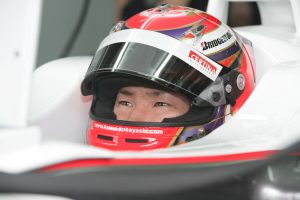 There can be little doubt that Japan’s greatest contribution to Formula One over the years has been in engineering. Honda-engined cars have won 75 Grands Prix in almost three decades of involvement, and Bridgestone are presently the sole tyre supplier in F1. Japanese drivers have never enjoyed much success, and have generally been ‘pay drivers’ brought in by corporate sponsors of the likes of Honda. To date there have been 21 Japanese drivers to have taken part in F1, most only having a handful of appearances. On paper, Takuma Sato is the most successful of them, with 44 points from 93 races. There is a young man now though, who, despite only having started 13 races, already has 18 points. This same man is being regarded by F1 experts as a star of the future, and potential world championship material. I had the opportunity to speak to him, Kamui Kobayashi.
There can be little doubt that Japan’s greatest contribution to Formula One over the years has been in engineering. Honda-engined cars have won 75 Grands Prix in almost three decades of involvement, and Bridgestone are presently the sole tyre supplier in F1. Japanese drivers have never enjoyed much success, and have generally been ‘pay drivers’ brought in by corporate sponsors of the likes of Honda. To date there have been 21 Japanese drivers to have taken part in F1, most only having a handful of appearances. On paper, Takuma Sato is the most successful of them, with 44 points from 93 races. There is a young man now though, who, despite only having started 13 races, already has 18 points. This same man is being regarded by F1 experts as a star of the future, and potential world championship material. I had the opportunity to speak to him, Kamui Kobayashi.
Kamui started karting at the age of nine. He moved up the ranks and raced in various series in Europe. Compared to many of the current F1 drivers, Kamui’s career prior to F1 was hardly glittering. He was obviously a talented driver, but virtually nobody considered him to be potential F1 champion material. There is little doubt that his nationality played a big part in him being given the testing role in Toyota last year, which provided the opportunity for him to enter F1, and wow fans around the world with two excellent drives in his first two races;
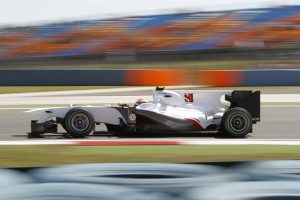 “I had definitely support from Japan and from Toyota but sometimes not enough in Europe, because there is, naturally, a lot of support for European drivers. This continent is the home of motor racing, F1 was born in the UK. In Formula 3 actually things were not too bad, but I suffered from quite a lot of strange penalties. This period is still difficult for me to understand. In GP2 also, some things still seem strange to me. After I had won the Asian series – which, I think, was quite competitive – it didn’t work out in the main series. I don’t really know why. Perhaps the car was different and naturally you depend upon that. Anyway, it was a hard time for me and it was very good for me to arrive in F1 and put in a good performance there. But, significantly, I learnt how to overcome difficult situations in that GP2 time.”
“I had definitely support from Japan and from Toyota but sometimes not enough in Europe, because there is, naturally, a lot of support for European drivers. This continent is the home of motor racing, F1 was born in the UK. In Formula 3 actually things were not too bad, but I suffered from quite a lot of strange penalties. This period is still difficult for me to understand. In GP2 also, some things still seem strange to me. After I had won the Asian series – which, I think, was quite competitive – it didn’t work out in the main series. I don’t really know why. Perhaps the car was different and naturally you depend upon that. Anyway, it was a hard time for me and it was very good for me to arrive in F1 and put in a good performance there. But, significantly, I learnt how to overcome difficult situations in that GP2 time.”
Many fans of F1 hold the view that Japanese drivers are error-prone, if sometimes fast. Is this fair?
“I agree that people think this and to a certain amount this is correct. I think the level of driving skill amongst the young drivers is not very high in Japan. We have a lack of competition there. And this means that they experience a lot of pressure and unknown competition when they come to Europe. If you are facing such a challenge under such pressure it is easy to make mistakes and overdrive your abilities.
I don’t like to regard myself as special or outstanding. But I have a different background. I am Japanese, yes that’s true, but I learnt my trade in Europe. I’ve been in Europe since I was 17 years old; my career has taken place in Europe, and my experience is European.”
On the topic of F1’s popularity in Japan, and if he thinks he can ‘do an Alonso’ and really bring F1 to Japan in a big way:
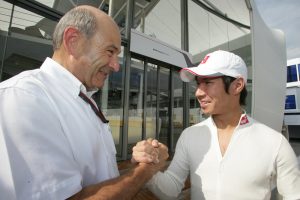 “I think F1 is something like the third or fourth most popular sport in Japan and this is a lot if you consider the fact that normally the live broadcast of the races begins around midnight. This necessarily limits the audience and, with this in mind, it is remarkable how many F1 fans you can find in Japan. When F1 goes to Suzuka (or Fuji), the amazing crowd there proves it; it is always packed there from the early morning until after sunset. I think the attention increases with me as the only Japanese driver in F1. My goal is to generate more interest from the young people in Japan, but this brings you back to the time difference problem. School children can’t watch TV at midnight.”
“I think F1 is something like the third or fourth most popular sport in Japan and this is a lot if you consider the fact that normally the live broadcast of the races begins around midnight. This necessarily limits the audience and, with this in mind, it is remarkable how many F1 fans you can find in Japan. When F1 goes to Suzuka (or Fuji), the amazing crowd there proves it; it is always packed there from the early morning until after sunset. I think the attention increases with me as the only Japanese driver in F1. My goal is to generate more interest from the young people in Japan, but this brings you back to the time difference problem. School children can’t watch TV at midnight.”
Does he feel more pressure now, in a nine-month championship, and as a main driver? Or was the pressure greater in his two races last year, when he had to prove himself in what could have been his only opportunity?
“In Formula One there is always huge pressure, I can’t tell in which situation it is or was higher. Hundreds of millions of people are watching you and once you begin to have a bad image, doors start closing. You must be always professional and do your job for the team.”
Some of Kamui’s performances this year have been inspired, attracting a lot of plaudits. It will be fascinating to see how he fares at his first home Grand Prix. The Japanese Grand Prix takes place at Suzuka 8th – 10th October, 2010.
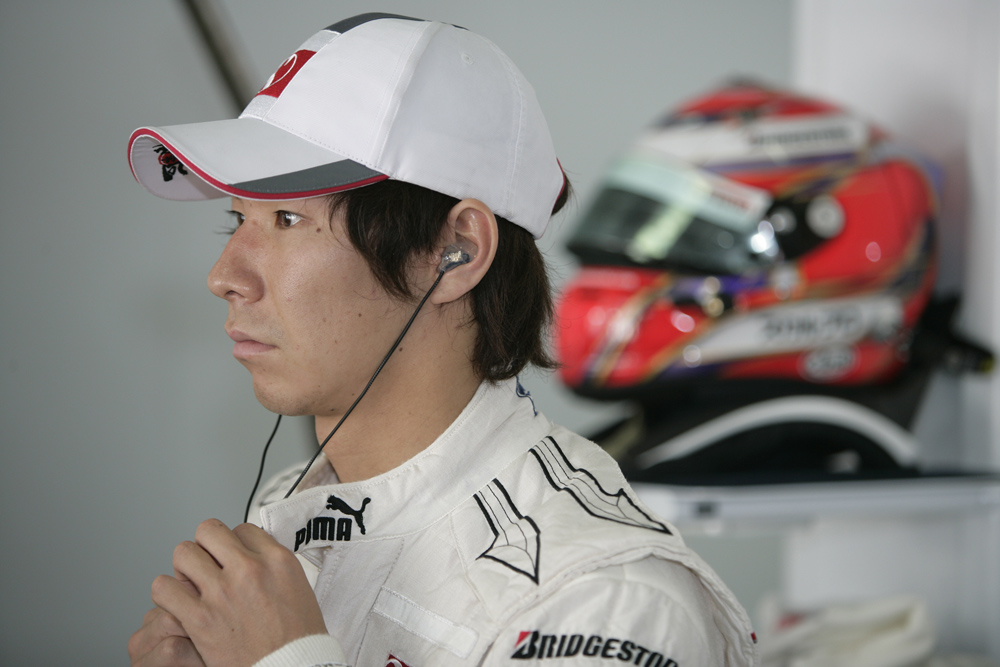
http://www.suzukacircuit.jp/f1/
Story by Simon Chapman
From J SELECT Magazine, October 2010

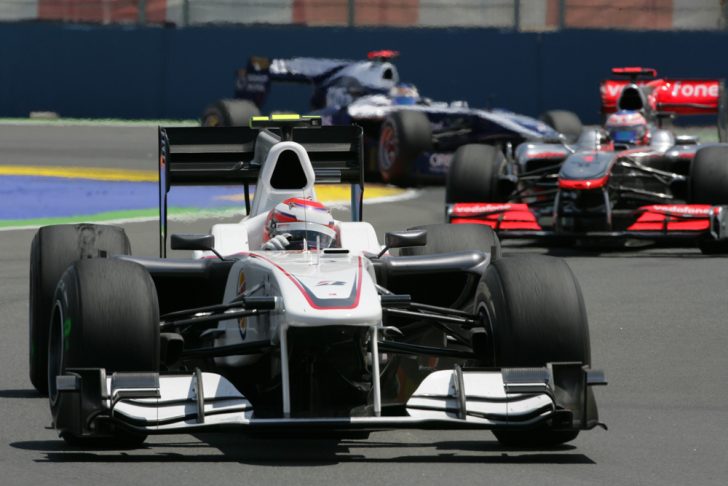



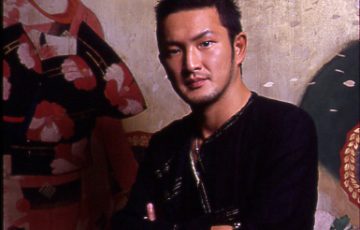



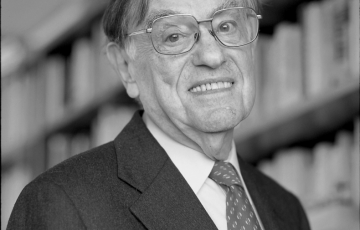
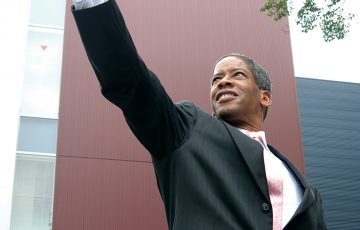
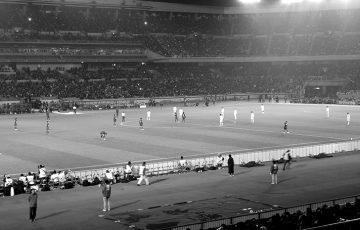
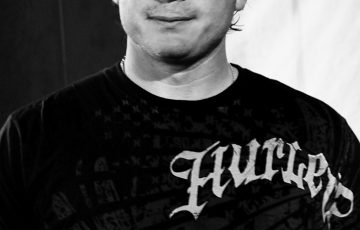


Recent Comments